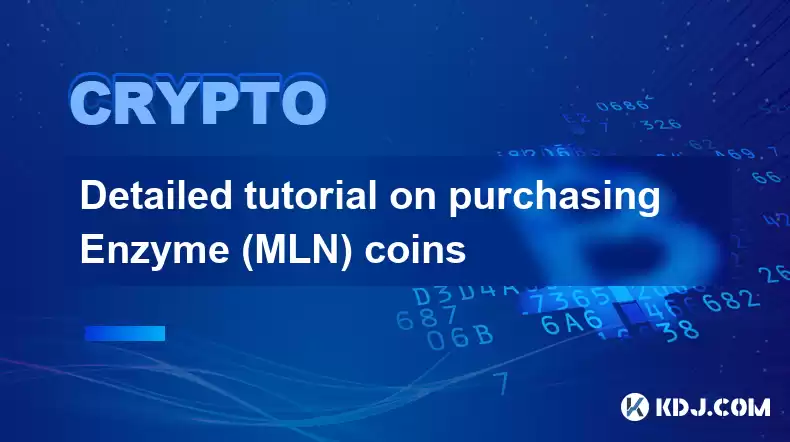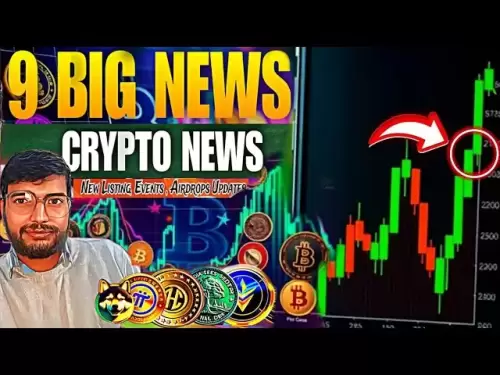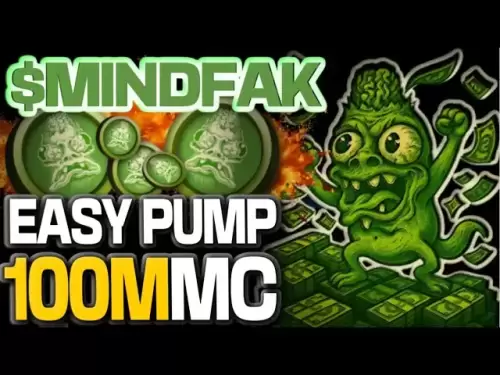-
 Bitcoin
Bitcoin $119100
0.00% -
 Ethereum
Ethereum $3649
-2.30% -
 XRP
XRP $3.213
-8.45% -
 Tether USDt
Tether USDt $1.000
-0.01% -
 BNB
BNB $783.2
-1.26% -
 Solana
Solana $191.1
-5.48% -
 USDC
USDC $0.9999
0.00% -
 Dogecoin
Dogecoin $0.2440
-8.65% -
 TRON
TRON $0.3103
-2.02% -
 Cardano
Cardano $0.8201
-7.68% -
 Hyperliquid
Hyperliquid $44.25
-3.09% -
 Stellar
Stellar $0.4326
-7.78% -
 Sui
Sui $3.777
-5.00% -
 Chainlink
Chainlink $18.34
-6.34% -
 Hedera
Hedera $0.2477
-8.72% -
 Bitcoin Cash
Bitcoin Cash $521.0
-0.79% -
 Avalanche
Avalanche $24.08
-6.29% -
 Litecoin
Litecoin $113.5
-6.79% -
 UNUS SED LEO
UNUS SED LEO $8.970
-0.16% -
 Shiba Inu
Shiba Inu $0.00001397
-8.55% -
 Toncoin
Toncoin $3.231
-2.27% -
 Ethena USDe
Ethena USDe $1.001
0.03% -
 Polkadot
Polkadot $4.174
-6.93% -
 Uniswap
Uniswap $10.37
-4.08% -
 Monero
Monero $317.6
-1.77% -
 Bitget Token
Bitget Token $4.720
-2.36% -
 Pepe
Pepe $0.00001290
-8.38% -
 Dai
Dai $1.000
0.02% -
 Aave
Aave $293.2
-4.95% -
 Bittensor
Bittensor $431.1
-3.60%
Detailed tutorial on purchasing Enzyme (MLN) coins
To purchase MLN, register on an exchange like Binance, Coinbase, or Kraken, deposit funds, and place a buy order using the desired number of MLN tokens or amount to spend.
Jan 06, 2025 at 02:00 pm

A Comprehensive Guide to Buying Enzyme (MLN) Tokens
Key Points
- Understanding Enzyme and MLN Token
- Choosing a Crypto Exchange
- Creating an Exchange Account
- Depositing Funds into the Account
- Placing a Buy Order for MLN
- Storing MLN Tokens in a Wallet
- FAQs on Buying and Storing MLN
Understanding Enzyme and MLN Token
Enzyme is a decentralized asset management platform that provides investors with a suite of tools to create, manage, and execute customized investment strategies. The platform's native token, MLN, is used to govern the protocol and incentivize users for contributing to the network.
Choosing a Crypto Exchange
Several crypto exchanges offer trading in MLN, including:
- Binance: The largest cryptocurrency exchange by trading volume, known for its vast token selection and low fees.
- Coinbase: A user-friendly exchange with a simple interface, ideal for beginners.
- Kraken: A reputable exchange with a strong focus on security and regulatory compliance.
Creating an Exchange Account
To purchase MLN, you need to create an account on the chosen exchange. The registration process typically involves providing personal information, completing identity verification, and setting up a secure password.
Depositing Funds into the Account
Once your account is verified, you can deposit funds to purchase MLN. Exchanges offer various deposit methods, including:
- Bank transfer: Transfer funds from your bank account directly to the exchange, which may take 1-3 business days to process.
- Credit/Debit card: Instant funding with a card but may incur higher fees.
- Cryptocurrency: Deposit existing cryptocurrency holdings from an external wallet, ensuring it's supported by the exchange.
Placing a Buy Order for MLN
After funding your account, you can place a buy order for MLN. Navigate to the MLN trading pair (e.g., MLN/USDT) and select the "Buy" option. Enter the desired number of MLN tokens or amount to spend and choose the order type:
- Market order: Executes immediately at the current market price.
- Limit order: Places an order to buy MLN at a specific price or better.
Storing MLN Tokens in a Wallet
Once you purchase MLN, it's crucial to store them securely. Consider the following options:
- Hardware wallet: A dedicated offline device that securely stores private keys.
- Software wallet: An app that manages private keys on your computer or smartphone.
- Exchange wallet: Convenient for holding small amounts of MLN but less secure than hardware or software wallets.
FAQs on Buying and Storing MLN
Q: What is the difference between MLN and other cryptocurrencies?
A: MLN is a governance and utility token specific to the Enzyme platform, primarily used to manage investment strategies and incentivize network participants.
Q: How can I trade MLN on decentralized exchanges (DEXs)?
A: MLN can be traded on DEXs like Uniswap or SushiSwap, but these platforms typically require a separate wallet to connect and may have higher fees and slippage.
Q: Is it legal to buy and sell MLN?
A: The legality of MLN trading varies by jurisdiction. Check local regulations to ensure compliance.
Q: What factors should I consider when choosing an exchange for MLN?
A: Consider trading volume, fees, security, and user interface when selecting an exchange.
Q: How can I protect my MLN tokens from theft or loss?
A: Use strong passwords, enable two-factor authentication, and store tokens in a reputable wallet with multiple security layers.
Disclaimer:info@kdj.com
The information provided is not trading advice. kdj.com does not assume any responsibility for any investments made based on the information provided in this article. Cryptocurrencies are highly volatile and it is highly recommended that you invest with caution after thorough research!
If you believe that the content used on this website infringes your copyright, please contact us immediately (info@kdj.com) and we will delete it promptly.
- South Korea's Credit Card Industry Embraces Stablecoin Regulations: A New Era?
- 2025-07-24 10:30:12
- Trump, AI, and Deregulation: A Wild West Tech Landscape?
- 2025-07-24 10:30:12
- Bitcoin Cash (BCH) Price Forecast & Trends: What's the Buzz?
- 2025-07-24 08:50:12
- Public Companies and Ethereum: A $3.2 Billion Bet on the Future?
- 2025-07-24 09:10:12
- XRP, Safe Havens, and BTC Miners: Navigating Crypto's Latest Moves
- 2025-07-24 08:30:12
- XRP, SEC, and ETFs: A Crypto Rollercoaster
- 2025-07-24 09:10:12
Related knowledge

What is Chainlink (LINK)?
Jul 22,2025 at 02:14am
Understanding Chainlink (LINK): The Decentralized Oracle NetworkChainlink is a decentralized oracle network designed to bridge the gap between blockch...

What is Avalanche (AVAX)?
Jul 22,2025 at 08:35am
What is Avalanche (AVAX)?Avalanche (AVAX) is a decentralized, open-source blockchain platform designed to support high-performance decentralized appli...

What is Polkadot (DOT)?
Jul 19,2025 at 06:35pm
Understanding the Basics of Polkadot (DOT)Polkadot (DOT) is a multi-chain network protocol designed to enable different blockchains to transfer messag...

What is Litecoin (LTC)?
Jul 23,2025 at 11:35am
Overview of Litecoin (LTC)Litecoin (LTC) is a peer-to-peer cryptocurrency that was created in 2011 by Charlie Lee, a former Google engineer. It is oft...

What is Monero (XMR)?
Jul 21,2025 at 10:07am
What is Monero (XMR)?Monero (XMR) is a decentralized cryptocurrency designed to provide enhanced privacy and anonymity for its users. Unlike Bitcoin a...

How to add indicators to Ethereum chart on TradingView?
Jul 19,2025 at 07:15am
What Is an Ethereum Chart on TradingView?The Ethereum chart on TradingView is a visual representation of the price movement of Ethereum (ETH) over a s...

What is Chainlink (LINK)?
Jul 22,2025 at 02:14am
Understanding Chainlink (LINK): The Decentralized Oracle NetworkChainlink is a decentralized oracle network designed to bridge the gap between blockch...

What is Avalanche (AVAX)?
Jul 22,2025 at 08:35am
What is Avalanche (AVAX)?Avalanche (AVAX) is a decentralized, open-source blockchain platform designed to support high-performance decentralized appli...

What is Polkadot (DOT)?
Jul 19,2025 at 06:35pm
Understanding the Basics of Polkadot (DOT)Polkadot (DOT) is a multi-chain network protocol designed to enable different blockchains to transfer messag...

What is Litecoin (LTC)?
Jul 23,2025 at 11:35am
Overview of Litecoin (LTC)Litecoin (LTC) is a peer-to-peer cryptocurrency that was created in 2011 by Charlie Lee, a former Google engineer. It is oft...

What is Monero (XMR)?
Jul 21,2025 at 10:07am
What is Monero (XMR)?Monero (XMR) is a decentralized cryptocurrency designed to provide enhanced privacy and anonymity for its users. Unlike Bitcoin a...

How to add indicators to Ethereum chart on TradingView?
Jul 19,2025 at 07:15am
What Is an Ethereum Chart on TradingView?The Ethereum chart on TradingView is a visual representation of the price movement of Ethereum (ETH) over a s...
See all articles

























































































